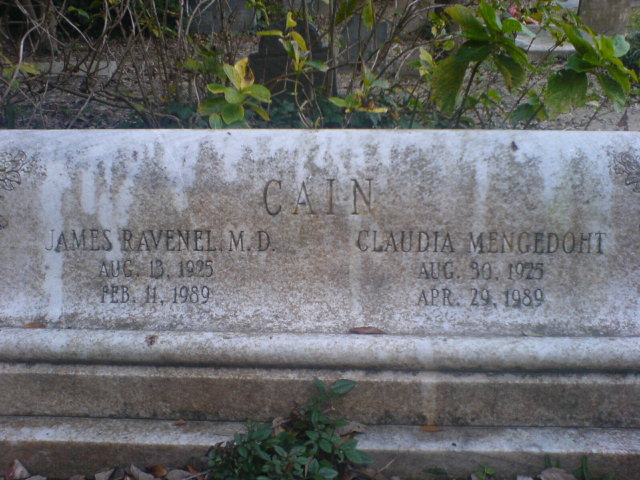To the Virgins, To Make Much of Time
 The Laudian Libertine and the Liber Pater: Christian and Pagan Themes in Robert Herrick’s “To the Virgins, To Make Much of Time”
The Laudian Libertine and the Liber Pater: Christian and Pagan Themes in Robert Herrick’s “To the Virgins, To Make Much of Time”
By
Varo Borja
Love seeketh not itself to please,Nor for itself hath any care,But for another gives its ease,And builds a Heaven in Hell's despair. –William Blake
A candle burns long into the night in the English countryside near Devonshire, the chill winds of winter flicker the flame as an aging, defamed and soon-to-be deposed priest pens the last few lines of a mammoth work. Myriad pastoral and priestly scenes are scribbled in the tome over which the priest labors, but the contents of his volume reflect not only the enlightened musings of an Anglican prelate, the poems in his book are full of sylvan scenes where flowers and lovers are found to be as sacred as the communion chalice and the tears of long dead saints. The year is 1647, and the priestly poet is Robert Herrick, author of a work containing more than 1,000 poems. One poem in particular stands out from the rest as the golden apple of Grecian myth stands out from an ordinary orchard. “To the Virgins, To Make Much of Time” is perhaps the greatest work of the more than a thousand found in Herrick’s volume, Hesperides, published in 1648. “To The Virgins, To Make Much of Time” is the epitome of Herrick’s quest to marry the lore of the pagans to the sacraments of the church. Thomas Whitaker, in his article titled, “Herrick and the Fruits of the Garden” for the Johns Hopkins University Press, explores in depth the relation of ancient myths and Christian themes found in Robert Herrick’s poetry, and refutes the claim made by some scholars that Herrick’s poetry was “trivial.” I will explore the claims made by Whitaker, and by using other scholarly sources as well, attempt to disclose some of the pagan and Christian motifs in “To the Virgins, To Make Much of Time” and build upon the ethos of Whitaker’s statement that Herrick sought to, “transcend death, and escape from the temporal flux into the eternal realm of art or ceremony” (Whitaker 33).
In the first section of Thomas Whitaker’s article, he enumerates the many themes found in Herrick’s poetry, stating, “This is a realm of nature, ritual, youth, love, perfumes, tran-shifting times, dainty myths, faeries, and religion” (Whitaker 17). “To the Virgins, To Make Much of Time” displays theses motifs in microcosm, with the first stanza focusing on nature, youth, and love particularly (Lines 1-4). However, as with most of Herrick’s poetry, the underlying root is of a religious nature. The first stanza not only evokes scenes of soon-to-be-wilting rosebuds, but slyly hints at the dual nature of Christ, as both corruptible flesh and eternal spirit. Also, the lines “And this same flower that smiles today / tomorrow will be dying” are references to the life and death of Christ (the Lily of the Valley) on the Cross. According to Orthodox Christian tradition, Jesus of Nazareth lived and died as a virgin, and was plucked from the cruel earth in the hither verge of his ripest maturity. In “Fruits of the Garden,” Thomas Whitaker states, “We see the eternal sickness of the rose that was later to prompt Blake’s cry, the transience of beauty which dies in the very act of smiling” (19). Certainly this first stanza of “To the Virgins, To Make Much of Time” is more than an admonition to marry; this thinly-veiled exhortation is a call to live in holiness while there is yet time, before the “transience of beauty” which is the world as we know it, passes away in the death before rebirth. Here Herrick is seeking, through clever allusions, to prolong his own youthful nature through association with “wilting rosebuds,” and to seek, as Christ did through adoption, the welfare of not only his young parishioners, but the best good of the universal “youth” of 17th century England. With so many “children” in his flock, Herrick would certainly transcend the confines of mortality and enter into the eternal priesthood of the saints and martyrs through the agent of his poetry.
Herrick continues with his Christian themes in the next stanza when he cries, “The glorious lamp of heaven, the sun / The higher he's a-getting / The sooner will his race be run / And nearer he's to setting” (5-8). Here Herrick is making a reference to the omnipresent and omniscient Father God, who views the world from heaven and is near to completing the current dispensation and the end of Second Age of Man. With the coming of the New Jerusalem and the rapture of the saints, the marriage of Christ and his Bride (the Church) will be complete and the time of earthly marriage will be over (Matthew 22:30). Once again, Herrick seeks, through thinly-veiled imagery, to exalt the Son of Man and God the Father and by art enter into deeper communion with the Triune God; a sort of poetic communion ceremony whereby Herrick escapes the death of the flesh by casting his eyes upon “the glorious lamp of heaven” (5).
In the next stanza of “To the Virgins, To Make Much of Time,” Herrick longs once again for youth—not only bodily youth but spiritual youth when he exclaims, “That age is best which is the first / When youth and blood are warmer / But being spent, the worse, and worst / Times still succeed the former” (9-12). As Randall Ingram notes in Studies In English Literature, “His [Herrick’s] poetry must be simultaneously monumental and malleable, stone and living” (Ingram 5). The eternal stone and the malleable branches of childlike faith resound throughout these lines from “To the Virgins, To Make Much of Time.” These lines also pay homage to the First Age of Man, the millennia before Christ when men lived by faith in the coming Messiah and his reign of justice. Here Herrick pays homage to the Old Testament saints through allusion to youth; the iconic, virginal state of Israel making preparations, through ages of foolish, yet necessary strivings for the coming of Christ, a time that shall surely, “succeed the former.” Herrick also makes reference to the blood of youth, the blood shed at Calvary that made propitiation for sin and insured eternal life; this blood also is the latter half of the Eucharist, the “former” sacrifice for sin which, portrayed through ceremony and Herrick’s artful verses alike, bequeaths immortality upon the recipient and the artist in transcendent harmony.
In his article, “Fruits of the Garden”, Thomas Whitaker states that Herrick’s poetry is above all “ceremonial” and concerned with images “drawn from nature [that] are delicately symbolic” (17). The natural union between man and woman, God and man, and Christ and God the Father is the underlying religious theme of this poem. The last stanza expresses this topic beautifully when Herrick writes, “Then be not coy, but use your time / And while ye may go marry / For having lost but once your prime / You may for ever tarry” (13-16). In these lines Herrick provides a dual exhortation to unbelievers, both unbelievers in the sacrament of marriage and wayward souls lacking eternal salvation. He adjures them to, “use” their “time” wisely, to accept the gift of marriage both in the physical and the spiritual sense “while ye may”, and not “tarry” until their “prime” is “lost” (13-16). This exhortation mirrors the verse from the twenty-fifth chapter of Matthew which states, “But while they were on their way to buy the oil, the bridegroom arrived. The virgins who were ready went in with him to the wedding banquet. And the door was shut” (Matthew 25:10). After the wedding invitations have been sent, and the bride and the bridegroom have undertaken the sacrament, the “door [will be] shut” and those who have tarried will be lost forever. Once again, Herrick sets his eyes on the eternal through the medium of the temporal, and seeks through his art to “transcend death” and sit, arrayed in his priestly garb, at the wedding ceremony of the Lamb (Whitaker 33).
Robert Herrick also includes, in true Renaissance fashion, many allusions to pagan myths within his poetry. Herrick is concerned with the natural, and natural man in his pristine, mythologized state was a lover of wine and beauty and a devotee of the English Liber Pater, or Dionysus. Thomas Whitaker states in “Fruits of the Garden” that:
Robert Herrick also lived in a time of religious extremism, particularly concerning the doctrines of John Calvin and the English Puritans. Robert Herrick was an Anglican vicar of the Laudian sect; a theological school that sought, by a type of marriage, to join the physical world (which was heavily denigrated by the Puritans) with the spiritual realm—a philosophy more in line with the prevailing, 17th century Renaissance humanism than with the grim, gaunt and draconian dogma of the Calvinists (Johnson 2). In his article titled, “In Vino—et in Amore—Veritas; Transformational Animation in Herrick’s ‘Sack’ Poems” William C. Johnson states:
It was in this shifting of paradigm, this confluence of themes and images, and in his ever-vigilant eye for the beauty of nature and the sacramental holiness of marriage in all its forms, that Robert Herrick truly was able to, “escape from the temporal flux into the eternal realm of art or ceremony” and join the pantheon of English literature’s living gods.
Works Cited
29 April 2008. http://www.luminarium.org/sevenlit/herrick/tovirgins.htm
In English Literature (Rice) 38 (1998): 127—. Academic Search Premier.
EBSCO. Academic Support Center, Caldwell Community College and Technical
Institute, Boone, NC. 24 April 2008. http://wf2dnvr2.webfeat.org/
Herrick’s ‘Sack’ Poems” Papers on Language and Literature 41 (2005): 89-108.
Masterfile Premier. EBSCO. Academic Support Center, Caldwell Community
College and Technical Institute, Boone, NC. 22 April 2008.
http://wf2dnvr2.webfeat.org/
JSTOR. Appalachian State University Library, Boone, NC. 28 April 2008.
http://www.jstor.org/stable/2872002




